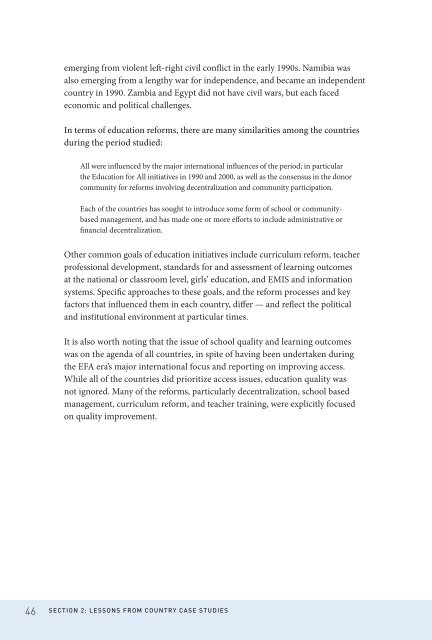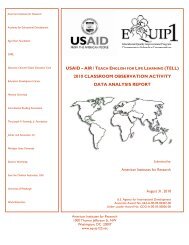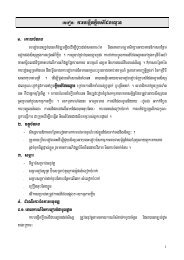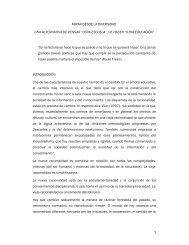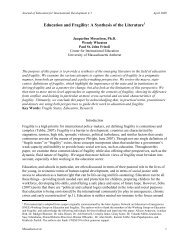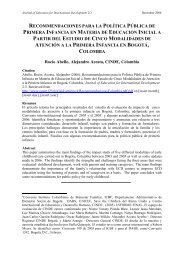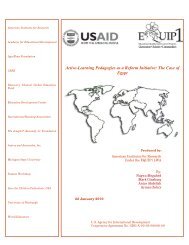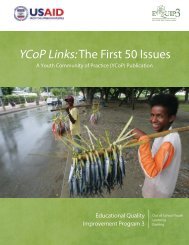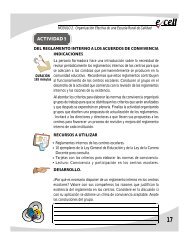The Power of Persistence: Education System ... - EQUIP123.net
The Power of Persistence: Education System ... - EQUIP123.net
The Power of Persistence: Education System ... - EQUIP123.net
You also want an ePaper? Increase the reach of your titles
YUMPU automatically turns print PDFs into web optimized ePapers that Google loves.
emerging from violent left-right civil conflict in the early 1990s. Namibia was<br />
also emerging from a lengthy war for independence, and became an independent<br />
country in 1990. Zambia and Egypt did not have civil wars, but each faced<br />
economic and political challenges.<br />
In terms <strong>of</strong> education reforms, there are many similarities among the countries<br />
during the period studied:<br />
All were influenced by the major international influences <strong>of</strong> the period; in particular<br />
the <strong>Education</strong> for All initiatives in 1990 and 2000, as well as the consensus in the donor<br />
community for reforms involving decentralization and community participation.<br />
Each <strong>of</strong> the countries has sought to introduce some form <strong>of</strong> school or communitybased<br />
management, and has made one or more efforts to include administrative or<br />
financial decentralization.<br />
Other common goals <strong>of</strong> education initiatives include curriculum reform, teacher<br />
pr<strong>of</strong>essional development, standards for and assessment <strong>of</strong> learning outcomes<br />
at the national or classroom level, girls’ education, and EMIS and information<br />
systems. Specific approaches to these goals, and the reform processes and key<br />
factors that influenced them in each country, differ — and reflect the political<br />
and institutional environment at particular times.<br />
It is also worth noting that the issue <strong>of</strong> school quality and learning outcomes<br />
was on the agenda <strong>of</strong> all countries, in spite <strong>of</strong> having been undertaken during<br />
the EFA era’s major international focus and reporting on improving access.<br />
While all <strong>of</strong> the countries did prioritize access issues, education quality was<br />
not ignored. Many <strong>of</strong> the reforms, particularly decentralization, school based<br />
management, curriculum reform, and teacher training, were explicitly focused<br />
on quality improvement.<br />
46<br />
SECTION 2: lESSONS fROM COUNTRY CASE STUdIES


